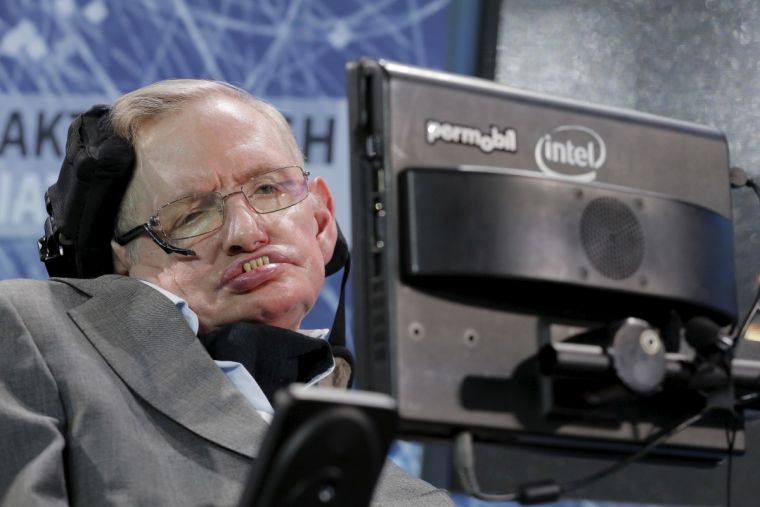Stephen Hawking Visits The Vatican To Discuss Origin Of The Universe

Atheist physicist Stephen Hawking has told scientists at the Vatican in Rome why he believes that before the universe suddenly came into being, there were no boundaries, no time – there was absolutely nothing at all.
The Bible teaches that God created the heavens and earth out of nothing.
Most scientists believe it took many billions of years to create everything in the world today, although some Christians interpret the Bible to believe it took God just six days.
Hawking was speaking at the Pontifical Academy of Sciences in Rome at a plenary session on science and sustainability.
He said that he and a colleague had worked out the physical conditions of the very start of the universe.
He said that space and time would have had no boundaries.
Hawking said: "With James Hartle from the University of California, I worked out what physical conditions the early universe must have, if space time had no boundaries in the past.
"Our model became known as the No-Boundary Proposal. It says that when we go back toward the beginning of our universe, space and time become fuzzy and cap off, somewhat like the south pole and the surface of the earth. Asking what came before the Big Bang is meaningless according to the No-Boundary proposal, because there is no notion of time available to refer to. It would be like asking what lies south of the South Pole."
Dr Vanderlei Bagnato, of the University of Sao Paolo in Brazil, told Rome Reports: "He was very clear in saying that some few things are missing. We still need to prove a few things to somehow close his ideas about the origin of the universe.
"I think it was a very nice lecture and he made a big effort to transmit to us, physicists and non-physicists, this idea of importance. Of building up the blocks of knowledge to understand how everything starts."
Pope Francis spoke with the scientists including Hawking this morning.
The aim of the gathering was to examine the effect of the latest scientific advances on sustainable development.
Pope Francis told them: "It falls to scientists, who work free of political, economic or ideological interests, to develop a cultural model which can face the crisis of climatic change and its social consequences, so that the vast potential of productivity will not be reserved only for the few."
He called for international norms to be set to safeguard the created order.
"It has now become essential to create, with your cooperation, a normative system that includes inviolable limits and ensures the protection of ecosystems, before the new forms of power deriving from the techno-economic model causes irreversible harm not only to the environment, but also to our societies, to democracy, to justice and freedom," he said.











